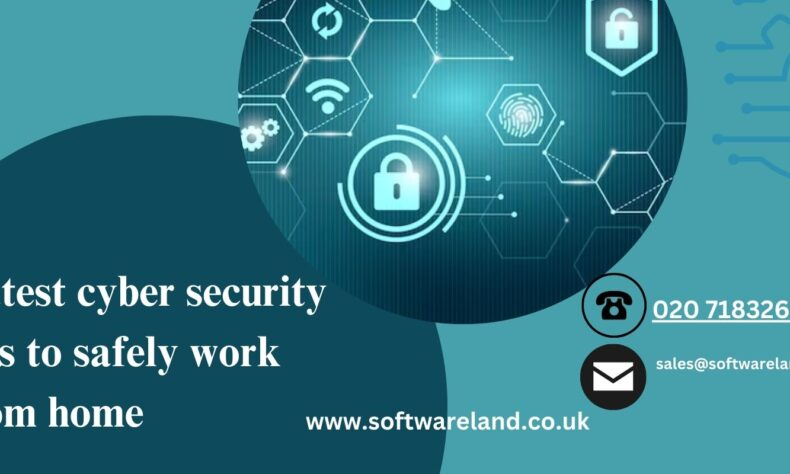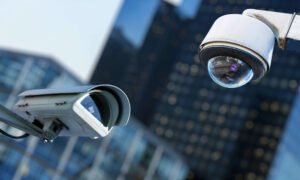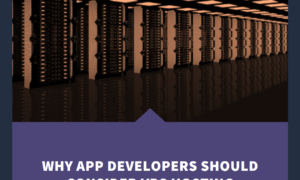
The COVID-19 pandemic has changed a lot of things in the present human life. A large number of people all over the world are now accustomed to work from homes. Especially for people who are into desk jobs, the importance of office premise to deliver one’s professional responsibilities seems to come down significantly. A large number of companies are asking employees to work remotely from their homes. The aspect of remote working is likely to introduce few additional security risks. These risks are higher for those who are not much used to working away from office.
Therefore the question that arises in this circumstance is what you can do or rather should do to minimise the risk factors. Here are the latest tried and tested tips that minimise risk. These tips are shared by experienced professionals handling the commercial domain of software in London.
First you should make your aspect of WFH (or work from home) more secure and well as comfortable. Here are the necessary inputs how you can achieve that target.
Select a cosy workspace
You should select a space that is ergonomically comfortable. The space should also minimise your distractions. Along with that the space should provide you with some security considerations as well.
· Make sure the space offers considerable privacy. This is where the difference between working at home differs with working at a coffee shop or a library. Make sure people cannot shoulder surf you or peep above your shoulder to watch your screen. Do not have your back to doors and windows from where others can peer in.
· If no place is available that can offer you adequate privacy then it is better to get a privacy filter. This is a kind of shield; it makes reading what is on your screen quite difficult unless you are standing right in front of it.
· While you are partaking in video conferences and conference calls make sure that no one should be able to eavesdrop even unintentionally. Use headphones during attending such calls and video meetings. Thus people at your end may still get to hear your voice as you speak but they will not get to hear what is spoken from the other end. Use a video meeting software that has advanced security feature.
· Make it a point to not allow family members to use your work devices. Whenever you may have to leave your device behind, like going to bathroom, make sure to lock the screen of the device. Thus no one can see what you are working on. When you return you have to do a quick signing into the system. How do I lock my screen is probably the next question that you are going to ask. With Windows devices press Windows Logo Key + L while for Mac machines press Control + Command + Q.
· Always make use of encrypted Wi-Fi for business. Now here is a tip that is worth remembering. A Wi-Fi network that is encrypted with WPA – 2 is actually more secure than a Wi-Fi that anyone can access. Every home router supports encryption. If you are working from home then you must make sure that the Wi-Fi system at home is secured and safe to use.
· Now suppose you require accessing other resources – like servers that are live at the location of your company. In that case you should make use of a VPN or Virtual Private Network to connect to the network of your office. A VPN makes intercepting your traffic difficult. It creates an encrypted tunnel for your network traffic to flow through. Even if you are not accessing the resources of your company it is still wise making use of a VPN to make your access to the Internet more secure.
Make sure your data is secured
If you want to keep your data safe then you must ensure it is secured. Here are few tips to help making your sensitive information safer and more secured.
· Always make use of a strong authentication to access your device. You can use a PIN, facial recognition of fingerprint to authenticate access to your device.
· When accessing resources from cloud it is always better using multi factor authentication or MFA. MFA makes use of multiple factors to give access to a device. It could be a PIN sent to your mobile phone along with a password. It can also be a PIN with a fingerprint or facial scan for authentication. In most cases you have to use multiple factors only the first time you sign in from a particular device. With MFA authentication it proves tougher for anyone to manage access to your device signing in as you.
· Passwords are yet another factor that must be taken into account. Do not use simple passwords like “hello!” or “password1”. If you are still using those passwords then it is high time to upgrade those. Generate more secure passwords and this factor cannot be emphasised any more. Length of a password is more crucial for your cyber security than its complexity, although both play a vital role in keeping you secured. Use passwords that are at least 12 characters in length. Avoid words in English and just spare your pet’s name. You can use a phrase, like maybe lyrics of one of your favourite songs. Or it can also be a movie quote or a passage from a poem. It is important that a password is lengthy, complex and at the same time easy to remember.
· It is also a good move to go for enabling local drive encryption. So if your device is stolen or lost, accessing local data will be difficult.
· All your devices must be up to date on security matters. A powerful antimalware programme – like Microsoft Defender Antivirus – must be running actively.
· Make it a point to use a modern browser, like Microsoft Edge for example. It is also important to make sure you are using the fastest version of it.
· Furthermore bit defender total security software experts at Softawareland suggest you should store all your files in a safe and secure cloud location with the help of bitdefender total security software in the UK. Avoid storing files on removable media as well as local drive. Cloud storage like OneDrive and SharePoint are quite reliable. Use any of these services to store files related to your work. So if a physical device is stolen or lost still all the data are available to you without any sweat. The cloud locations mentioned above also help in data recovery in case you are hit with ransomeware.





